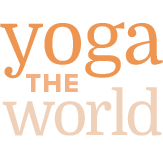Is marriage worth it?
Marriage is complicated.
This is not a new revelation, nor am I the first to say it. But it is a thought that feels especially resonant as I approach my 10-year wedding anniversary. I’ve been married three times, which I am neither proud nor ashamed of: it is a data point that somehow just is.
If I am honest, I probably don’t so much believe in marriage as in the act of making a public declaration of intent and effort to be in deep relationship with another human being. There’s something powerful in committing to seeing, holding, and truly being with someone, for whatever length of time that continues to make sense.
Sometimes I wonder: if there had been another way to mark that commitment, would I have chosen it instead? Perhaps. The cultural weight of marriage, its traditions and expectations, sometimes feels like an inheritance I accepted without question. Once you’ve been married, it’s hard not to do it again with each significant relationship. It feels, somehow, as if not doing so would diminish the current relationship’s value, as if it is somehow lesser than what came before.
I also know that the rise of the nuclear family, based on a heterosexual marriage, as the ultimate or most valid family structure is directly linked to the rise of individualism, capitalism, and modern societies. It’s a model that has, frankly, led to more work for women and a pervasive sense of isolation for many. We’re expected to do it all, alone, within these tidy, self-contained units.
But relationships and families don’t thrive in isolation. We all need community, connection, and collective care, all of which can co-exist with marriage but aren’t what marriage — as we usually understand it — is about.
So, as I reflect on a decade with my spouse, I ask myself: Is marriage worth it? I don’t know. But I do know this: my committed relationship with my spouse certainly is. It is worth the work, the messiness, and the effort. For us, it means moving towards each other with care and compassion, even when we’re in conflict. It means that we are both equally invested in helping “us” survive, also when it is hard. That commitment, that intentionality, feels like the most important part.
Maybe that’s what I’ve learned: the institution of marriage is not inherently good or bad. It’s the relationship we forge, the choices we make to show up for each other, that matter. Marriage licenses or not, what really counts is how we navigate the journey together with the people we love.

